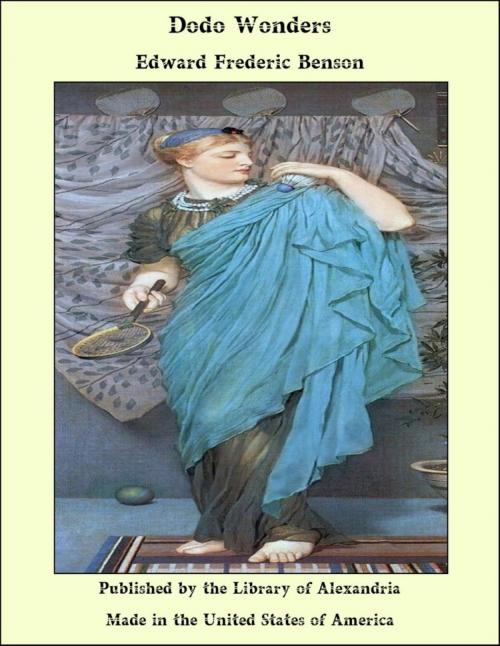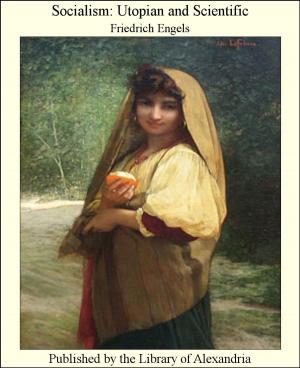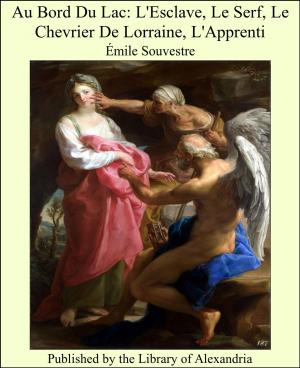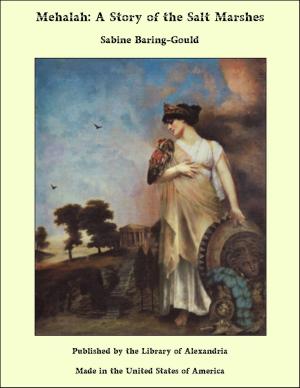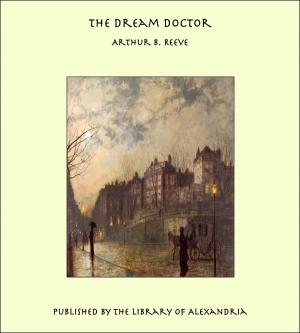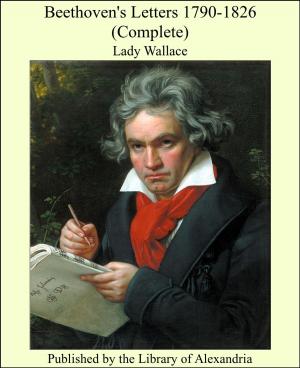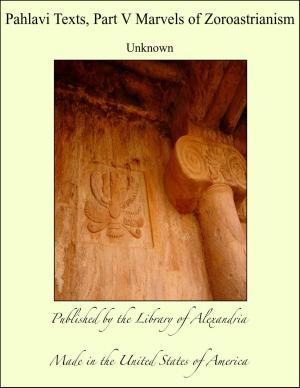| Author: | Edward Frederic Benson | ISBN: | 9781465595881 |
| Publisher: | Library of Alexandria | Publication: | March 8, 2015 |
| Imprint: | Language: | English |
| Author: | Edward Frederic Benson |
| ISBN: | 9781465595881 |
| Publisher: | Library of Alexandria |
| Publication: | March 8, 2015 |
| Imprint: | |
| Language: | English |
Dodo was so much interested in what she had herself been saying, that having just lit one cigarette, she lit another at it, and now contemplated the two with a dazed expression. She was talking to Edith Arbuthnot, who had just returned from a musical tour in Germany, where she had conducted a dozen concerts consisting entirely of her own music with flaring success. She had been urged by her agent to give half a dozen more, the glory of which, he guaranteed, would completely eclipse that of the first series, but instead she had come back to England. She did not quite know why she had done so: her husband Bertie had sent the most cordial message to say that he and their daughter Madge were getting on quite excellently without her—indeed that seemed rather unduly stressed—but ... here she was. The statement of this, to be enlarged on no doubt later, had violently switched the talk on to a discussion on free will. Edith, it may be remarked, had arrived at her house in town only to find that her husband and daughter had already gone away for Whitsuntide, and being unable to support the idea of a Sunday alone in London, had sent off a telegram to Dodo, whom she knew to be at Winston, announcing her advent, and had arrived before it. On the other hand, her luggage had not arrived at all, and for the present she was dressed in a tea-gown of Dodo's, and a pair of Lord Chesterford's tennis-shoes which fitted her perfectly. "I wonder," said Dodo. "We talk glibly about free will and we haven't the slightest conception what we really mean by it. Look at these two cigarettes! I am going to throw one away in a moment, and smoke the other, but there is no earthly reason why I should throw this away rather than that, or that than this: they are both precisely alike. I think I can do as I choose, but I can't. Whatever I shall do, has been written in the Book of Fate; something comes in—I don't know what it is—which will direct my choice. I say to myself, 'I choose to smoke cigarette A and throw away cigarette B,' but all the time it has been already determined. So in order to score off the Book of Fate, I say that I will do precisely the opposite, and do it. Upon which Fate points with its horny finger to its dreadful book, and there it has all been written down since the beginning of the world if not before. Don't let us talk about free will any more, for it makes one's brain turn round like a Dancing Dervish, but continue to nurse our illusion on the subject. You could have stayed in Germany, but you chose not to. There!"
Dodo was so much interested in what she had herself been saying, that having just lit one cigarette, she lit another at it, and now contemplated the two with a dazed expression. She was talking to Edith Arbuthnot, who had just returned from a musical tour in Germany, where she had conducted a dozen concerts consisting entirely of her own music with flaring success. She had been urged by her agent to give half a dozen more, the glory of which, he guaranteed, would completely eclipse that of the first series, but instead she had come back to England. She did not quite know why she had done so: her husband Bertie had sent the most cordial message to say that he and their daughter Madge were getting on quite excellently without her—indeed that seemed rather unduly stressed—but ... here she was. The statement of this, to be enlarged on no doubt later, had violently switched the talk on to a discussion on free will. Edith, it may be remarked, had arrived at her house in town only to find that her husband and daughter had already gone away for Whitsuntide, and being unable to support the idea of a Sunday alone in London, had sent off a telegram to Dodo, whom she knew to be at Winston, announcing her advent, and had arrived before it. On the other hand, her luggage had not arrived at all, and for the present she was dressed in a tea-gown of Dodo's, and a pair of Lord Chesterford's tennis-shoes which fitted her perfectly. "I wonder," said Dodo. "We talk glibly about free will and we haven't the slightest conception what we really mean by it. Look at these two cigarettes! I am going to throw one away in a moment, and smoke the other, but there is no earthly reason why I should throw this away rather than that, or that than this: they are both precisely alike. I think I can do as I choose, but I can't. Whatever I shall do, has been written in the Book of Fate; something comes in—I don't know what it is—which will direct my choice. I say to myself, 'I choose to smoke cigarette A and throw away cigarette B,' but all the time it has been already determined. So in order to score off the Book of Fate, I say that I will do precisely the opposite, and do it. Upon which Fate points with its horny finger to its dreadful book, and there it has all been written down since the beginning of the world if not before. Don't let us talk about free will any more, for it makes one's brain turn round like a Dancing Dervish, but continue to nurse our illusion on the subject. You could have stayed in Germany, but you chose not to. There!"
